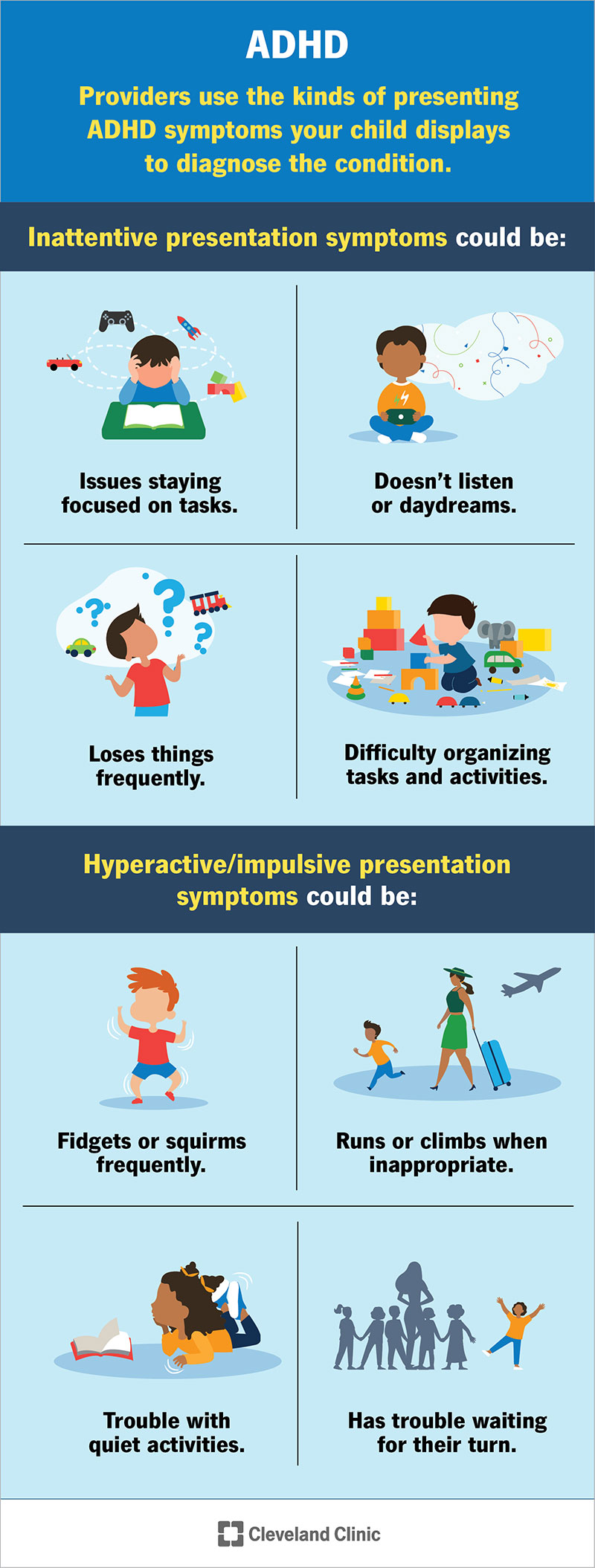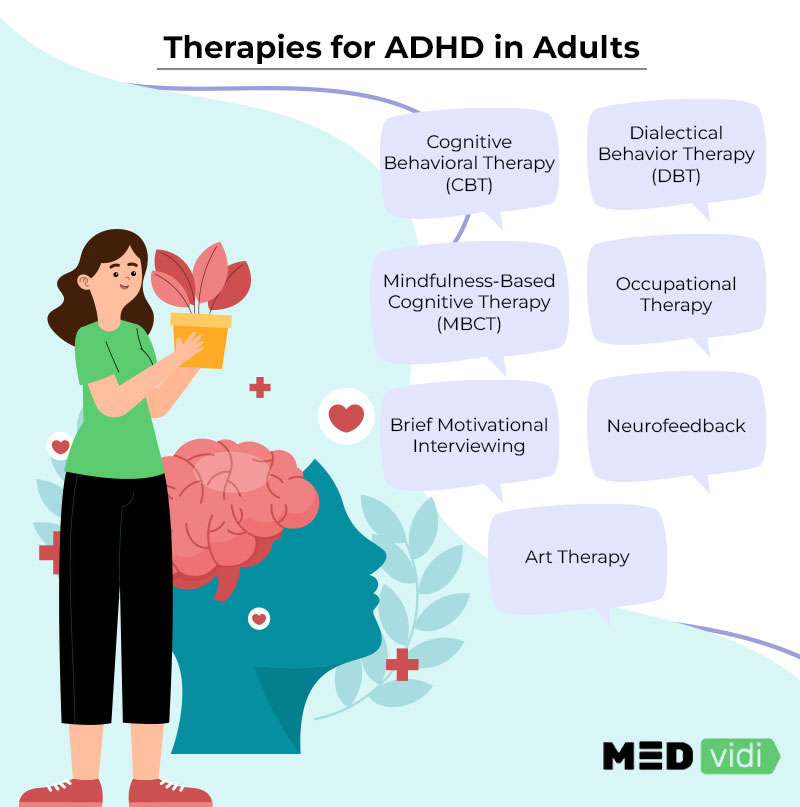Therapist for ADHD Offering Effective Care Plans
Exploring Reliable ADHD Treatment Choices for All Ages
The complexities of Attention deficit disorder (ADHD) present one-of-a-kind difficulties across different age, requiring an extensive expedition of effective treatment alternatives. A combination of behavior therapies, pharmacological treatments, and lifestyle adjustments has actually revealed promise in attending to the varied requirements of people with ADHD. The efficacy of these techniques can vary considerably based on personal scenarios, elevating essential questions about tailored methods. As we check out the range of therapy methods available, it becomes important to think about not just their instant effects however likewise their long-lasting ramifications for people and households.
Understanding ADHD and Its Impact
Attention-Deficit/Hyperactivity Problem (ADHD) is a neurodevelopmental condition defined by persistent patterns of inattention, attention deficit disorder, and impulsivity that can considerably affect numerous facets of an individual's life. It generally shows up in youth, although symptoms can persist right into their adult years. The core symptoms of ADHD can interfere with academic performance, impede social interactions, and complicate occupational undertakings.
Individuals with ADHD usually have a hard time with maintaining concentrate on tasks, organizing tasks, and complying with through on directions, which can lead to scholastic underachievement (Depression Treatment). In social contexts, impulsivity may lead to difficulties in forming and maintaining connections, as people may interrupt discussions or make rash decisions without taking into consideration repercussions
Furthermore, ADHD can co-occur with various other psychological health and wellness problems, such as anxiety and anxiety, additionally making complex medical diagnosis and therapy. The variability in sign discussion implies that ADHD can impact people in different ways, necessitating an individualized strategy to monitoring. Understanding ADHD's multifaceted impact is important for establishing efficient methods that sustain individuals in navigating everyday challenges and achieving their potential. Comprehensive awareness of ADHD's nature and implications prepares for discovering suitable treatment choices tailored to each individual's demands.
Behavioral Therapies for ADHD
Numerous behavior treatments have been developed to properly resolve the difficulties connected with ADHD, concentrating on changing certain behaviors and cultivating important abilities. Among the most identified strategies are cognitive-behavioral therapy (CBT), parent training, and social abilities training.
CBT helps people identify and transform unfavorable idea patterns and habits, promoting an extra positive expectation and boosted self-regulation. This treatment usually consists of useful strategies for taking care of impulsivity and enhancing company. Parent training programs empower caretakers by equipping them with strategies to reinforce favorable behaviors and set consistent borders, which can be particularly helpful for children with ADHD.
Social skills training is one more important component, training individuals with ADHD how to connect efficiently with peers - Depression Treatment. This method frequently includes role-playing and responses to improve interaction, teamwork, and conflict resolution skills
Including these behavioral therapies right into a thorough treatment strategy can substantially boost functioning and lifestyle for people with ADHD. Inevitably, the effectiveness of these therapies depends upon tailored strategies that consider the unique requirements of each individual, therefore fostering resilience and flexibility in day-to-day live.
Medication Options Available
For numerous individuals with ADHD, medicine can play a considerable duty in taking care of symptoms and improving general performance. Both key groups of drugs suggested for ADHD are energizers and non-stimulants.
Stimulants, such as methylphenidate and amphetamine-based medicines, are the most typically utilized treatments. These drugs work by increasing the levels of neurotransmitters, specifically dopamine and norepinephrine, in the mind, which aids boost focus and lower impulsivity and attention deficit disorder. They frequently produce rapid results, making them a preferred alternative for several people.

It is necessary for doctor to conduct an extensive assessment to determine the most appropriate medication based on individual needs, medical history, and prospective adverse effects. Routine follow-up and tracking are also important to guarantee the efficiency of the chosen therapy and to make any needed modifications.
Way Of Living Changes to Take Into Consideration
Handling ADHD effectively extends beyond drug, as way of living modifications can substantially enhance overall well-being and signs and symptom control. Including structured routines is crucial; regular routines help people with ADHD handle their time successfully and decrease sensations of bewilder.
Regular exercise is one more essential component. Workout not only helps to boost concentration yet likewise increases state of mind and minimizes tension levels. Tasks such as yoga or group sports can be specifically helpful, promoting both fitness and social communication.
Nutrition likewise plays a pivotal function. Depression Treatment. A balanced diet plan rich in omega-3 fatty acids, whole grains, and lean healthy proteins can add online psychiatrist sessions to enhanced focus right here and cognitive function. Restricting sugar and processed foods is a good idea, as these can intensify attention deficit disorder and impulsivity
Sleep hygiene is necessary for managing ADHD symptoms. Establishing a routine rest schedule and producing a peaceful setting can enhance sleep high quality, causing far better attention and emotional regulation.
Alternate and Alternative Strategies
Alternative and holistic methods to ADHD therapy use a diverse series of choices that match standard techniques. These methods frequently concentrate on way of life adjustments, nutritional treatments, and restorative methods that intend to improve overall well-being while dealing with ADHD symptoms.

Mindfulness and behavior modifications are additionally gaining grip as alternative treatments. Practices such as yoga exercise, reflection, and cognitive-behavioral therapy can cultivate self-regulation and boost focus. These methods sustain psychological durability, which is especially beneficial for individuals with ADHD.
Natural supplements, such as ginkgo biloba and ginseng, are often checked out; nonetheless, it is critical to get in touch with healthcare professionals prior Clicking Here to including these into therapy strategies. While choice and all natural strategies can give beneficial assistance, they must preferably be utilized in conjunction with evidence-based treatments to achieve optimal outcomes for taking care of ADHD throughout any ages.
Conclusion
In summary, effective ADHD treatment requires an extensive method that includes behavior modifications, medicine, way of life modifications, and holistic approaches. Tailored interventions can dramatically boost individuals' functioning and lifestyle, while appropriate drug guarantees optimal symptom monitoring. Moreover, embracing structured regimens, engaging in normal physical task, and practicing mindfulness can boost emotional regulation and interest. This diverse strategy emphasizes the significance of individualized care in attending to the diverse needs of people with ADHD across every age groups.